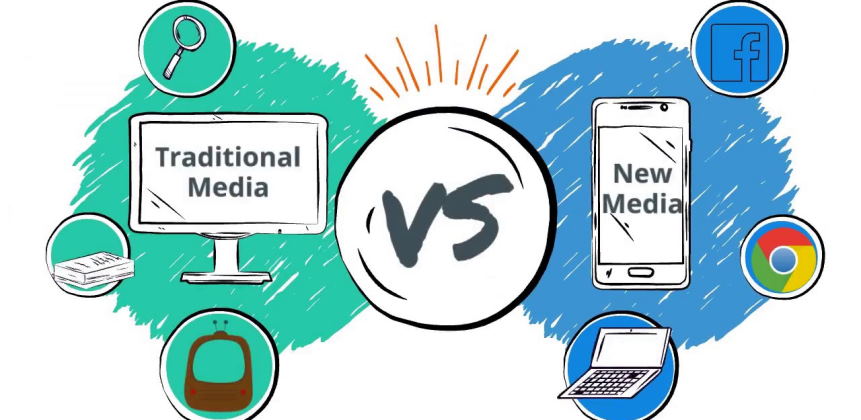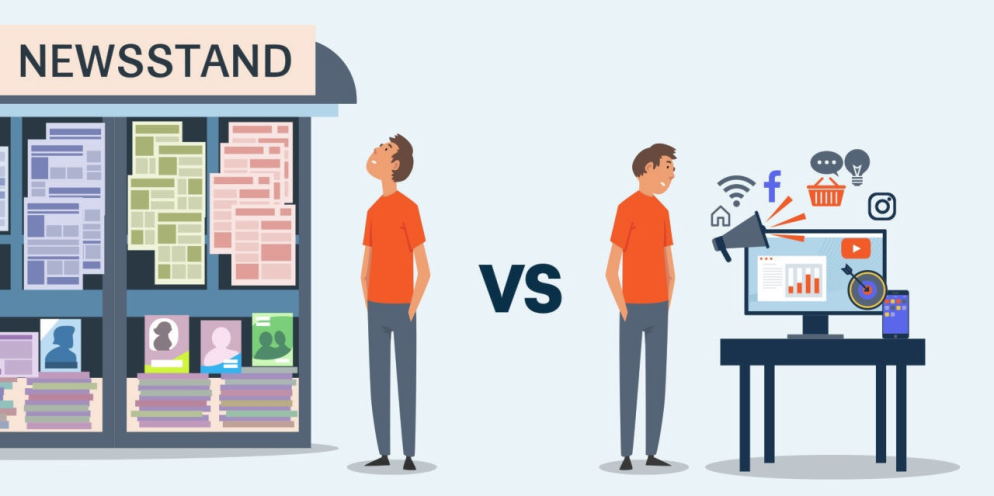Share This
The Pros and Cons of Traditional Media vs. New Media: Which Is Better for Your Business?
There’s no doubt that the internet has changed the way we consume information. With new media platforms like blogs, social media, and podcasts, we can get our news and entertainment whenever and wherever we want. But does this mean that traditional media is obsolete? In this blog post, I’ll explore the pros and cons of traditional media vs. new media. Stay tuned!
Differences between new media and traditional media
Traditional media has been around for centuries and is still being used today. It includes print media, like newspapers and magazines, and broadcast media, like television and radio. New media, on the other hand, is a relatively new concept. It includes online platforms, like social media and websites.
There are pros and cons to both traditional and new media. Traditional media is more established and, therefore may be more trusted by some people. It also tends to be more regulated than new media, so there is less risk of spreading false information. However, traditional media can be more expensive to produce and distribute than new media and can be less flexible in terms of how it is used.

New media has some advantages over traditional media as well. It is often more accessible since people can access it from anywhere in the world with an internet connection. It is also usually more interactive, so users can dynamically engage with the content. New media can be updated more quickly and easily than traditional media.
However, new media also has some disadvantages. Because it is still relatively new, there is less regulation around it, which means a greater risk of spreading false or misleading information. Additionally, new media platforms are often controlled by a small number of companies, which can lead to a lack of diversity in the available content.
Ultimately, the choice between traditional and new media depends on the needs and preferences of the individual. However, both have advantages and disadvantages, and it is important to consider these before making a decision.

Traditional media vs. new media: which is more effective?
The debate over which is more effective, traditional or new media, has been going on for some time. While there are pros and cons to both, the fact remains that each has its own advantages and disadvantages.
Traditional media, such as newspapers, television, and radio, have been around for many years. They are well-established and have a large audience reach. However, they can be expensive to produce and distribute. Additionally, traditional media outlets are often perceived as less trustworthy than new media sources.
New media, such as blogs and social networking sites, are relatively new but have quickly gained popularity. They are often more credible and trustworthy than traditional media sources. Additionally, new media sources are typically more affordable to produce and distribute. However, new media outlets often have a smaller audience reach than traditional media sources.
So, which is more effective, traditional media or new media? The answer likely depends on the specific situation and goals. For example, if you are looking to reach a large audience quickly, traditional media may be a better option. However, new media may be a better choice if you are looking for a more cost-effective option or one that is perceived as being more trustworthy.






